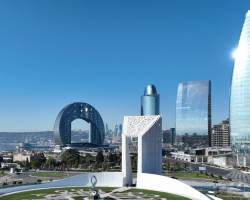New rules have been adopted regarding the deduction of expenses from income for representation expenses, employees' housing and meal expenses, as well as expenses related to treatment-preventive meals, milk, and other products and materials given to employees working under harmful, strenuous, or underground working conditions (Effective since 23 November 2024).
New rules have been adopted regarding the deduction of expenses from income for representation expenses, employees' housing and meal expenses, as well as expenses related to treatment-preventive meals, milk, and other products and materials given to employees working under harmful, strenuous, or underground working conditions (Effective since 23 November 2024).
These rules include the value-added tax (VAT) as part of the deductible expenses for taxation purposes, in addition to the specified income deductions.
Meal expenses paid for employees during their absence (such as vacation, illness, etc.) or while on a business trip are not deducted from income under this rule.
The following meal expenses, as well as expenses related to treatment-preventive meals, milk, and equivalent products and materials for employees working under harmful, strenuous, and underground conditions are included in the deductions from income for tax purposes:
The following conditions apply for the deduction of employee meal expenses within the established norms:
Treatment-Preventive Meals, Milk, and Equivalent Products and Materials for Employees Working Under Harmful, Strenuous, and Underground Conditions are considered as deductible expenses.
The daily expense norm for treatment-preventive meals, milk, and equivalent products for employees in harmful, strenuous, or underground work is added to the meal expense norm for employees.
When the daily meal expense norm for crew members in maritime transportation is applied, the general meal expense norm does not apply.
Fifty percent of housing (renting residential apartments or individual houses) expenses incurred for employees during the tax year may be deducted from income, provided it does not exceed 1% of the annual income.
The following conditions apply for the deduction of employee housing expenses:
Fifty percent of representative expenses incurred by the taxpayer during the tax year may be deducted from income, provided it does not exceed 1% of the annual income.
For the deduction of representative expenses, they must be incurred non-cash, justified, and documented according to the procedures established by the Tax Code.
Representation expenses include the costs incurred for the formal reception and/or service of participants in events organized to establish and/or maintain mutual cooperation. The following costs are considered part of representation expenses:
Expenses related to entertainment, recreation, and health prevention or treatment are not included in representative expenses.
The concept of “transfer prices” is newly introduced into Azerbaijani tax law. The transfer prici...
The Regulation on the “E-accounting” information system has been approved. This step constitutes ...
Here we explain the amendments to the Tax Code of Azerbaijan effective 1 January 2026
Proper and legal accounting is one of the vital issues that every company should pay attention to...



-250x200.jpg)

